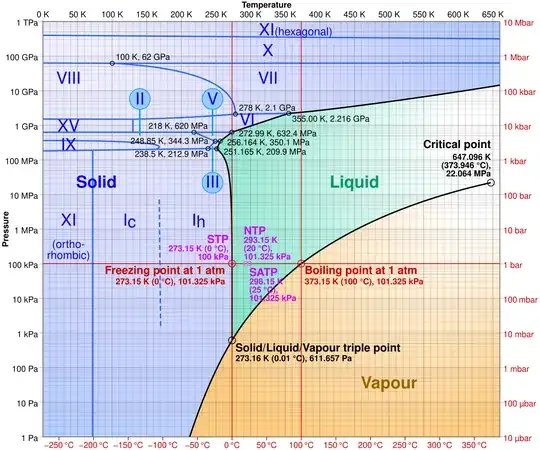Picture a solid lead ball. Apart from the imaginary case where it's emerged in an infinite volume of water (in which case the water will not form a black hole), in which it surely will float (the gravity of the water pulls on the ball spherical symmetrically), maybe it can in another situation.
Assume the ball finds itself in a thick layer of water. The ground the water is resting on is flat and has an equal temperature everywhere, above zero degrees Celcius. The water is in thermal equilibrium with this ground, and, assuming the water surface is flat too, it's also in thermal equilibrium with the air above the water, which has a constant temperature which is lower than the bottom temperature. It is clear that a (non-static) equilibrium develops. Heat is moving from the ground to the water surface.
But my main question is: Can a lead ball in these circumstances float in this massive and deep water or be accelerated upward at a certain depth?
Here one can find info about the compressibility of lead.
Here one can find the compressibility of water.
This is NOT a homework question.


